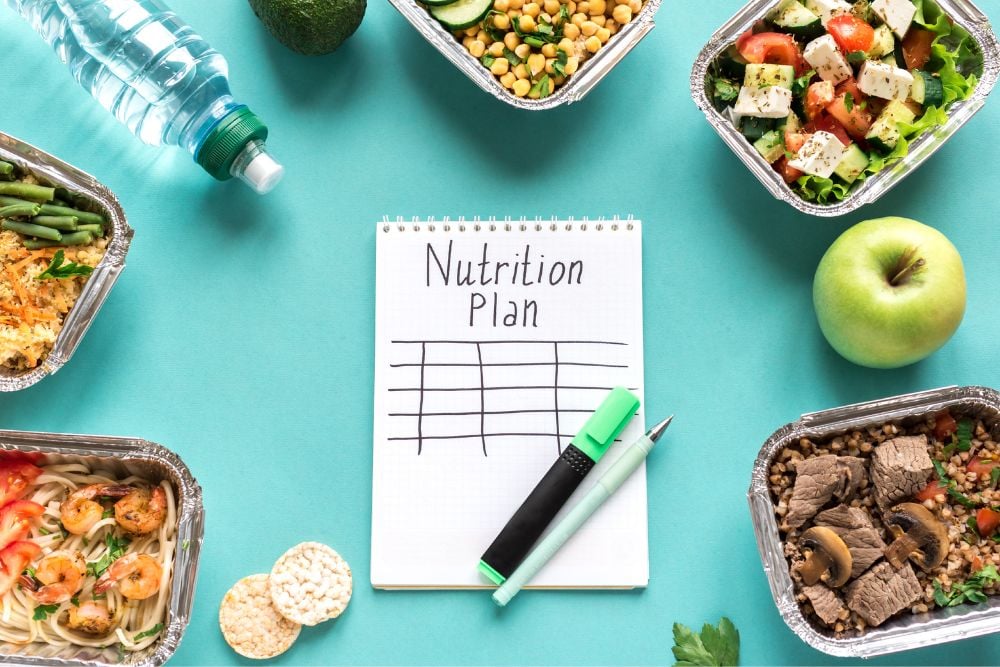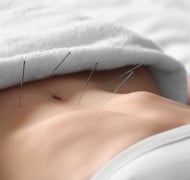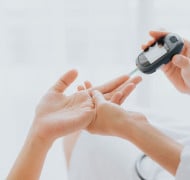Diet and Nutrition Tips for Your Fertility Journey
Posted on October 28th, 2022

You’ve taken the steps to become pregnant, but now, the real work begins. You and your partner, if applicable, should attend all medical appointments and follow the directions provided. But perhaps just as important, you need to follow a healthy lifestyle. One of the best ways to ensure you’re healthy and prepared for any fertility procedures and pregnancy is to consume a healthy diet and ensure proper nutrition. Here are a few helpful dietary suggestions.
Feed Your Overall Health and Fertility
Consuming a balanced diet that incorporates all the major food groups can promote your body’s proper performance. It can support ovulation in women, while men benefit from improved sperm production and strength. Even the smallest dietary changes can have a big impact.
You should consume at least six daily servings of fruits and vegetables, ideally, with a combination of colorful options. That way, you take in higher levels of essential nutrients, like vitamins C and E and beta-carotene. It’s also a good idea to seek out foods high in folic acid (more below), a crucial nutrient for reproductive health, fertility, and pregnancy.
Also, be sure you avoid foods made with white flour; instead, opt for whole grains, such as whole wheat, brown rice, and oats. Healthy fats, such as vegetable oils, nuts, seeds, and fish, are essential, as they promote fertility and overall health. But trans fats, like those found in fried and processed foods, are associated with increased infertility risks, for both men and women. You’ll also want to avoid unpasteurized meat, cheese, meat, eggs, and dairy. These can harm a developing fetus, and mothers may be at risk for food-borne bacterial conditions.
Supplemental Coverage for Fertility
Throughout the fertility process, certain nutrients may promote valuable health benefits for men and women.
- Vitamin B9, or folate (folic acid, in its synthetic form), is an antioxidant that is an important nutrient for fertility health. Antioxidants destroy free radicals in your body, which can damage both sperm and egg cells. It’s especially important for both pregnant women and women who are trying to conceive, and it’s strongly recommended that folate be taken daily before and during pregnancy, whether on its own or in your prenatal multivitamin. The Centers for Disease Control (CDC) also recommends that all women of reproductive age consume folate, as it may help prevent neural tube defects. You can also get folic acid from foods such as leafy green vegetables, fruits, beans, nuts (also rich in dietary fiber), eggs, seafood, and whole grains, like fortified bread and cereals.
- The minerals zinc and selenium are also antioxidants, and both benefit fertility. Deficiencies have been associated with poor sperm quality and mobility. If you’d prefer getting your minerals from dietary sources, selenium-rich foods include poultry and eggs, meat, seafood, fish, nuts, bread, and grains. You can get zinc from dark chicken meat, extra lean beef, baked beans, dairy products, and fortified cereals.
- Calcium is advised, as it helps to regulate blood pressure as well as the female reproductive system. This mineral can help prepare your body for future pregnancy-related changes and may play a role in the early stages of embryo development. For men, calcium deficiencies may be associated with fertility issues, such as sperm motility.
- Research suggests that vitamin D may be closely linked with female fertility and healthy pregnancy outcomes. Health experts recommend pregnant women consume vitamin D 400-800 IU per day. For men, it may ensure sperm motility, so you should consume 600 mg per day. You can also get vitamin D through daily sunlight exposure or by eating such foods as oily fish and fortified cereals.
There are also supplement blends and kits that are specifically formulated to help support reproductive health and fertility. One such brand is Nutrabloom, which offers whole food-based vitamins and nutritional supplements that can help aid conception. Nutrabloom provides various supplemental kits for male fertility, polycystic ovarian syndrome care, ovarian support, and more.
There are many dietary dos and don'ts to consider with fertility treatments or pregnancy. Fortunately, you don’t have to go through this process alone. The healthcare professionals at Aspire Fertility are available to address all of your questions and concerns.

























